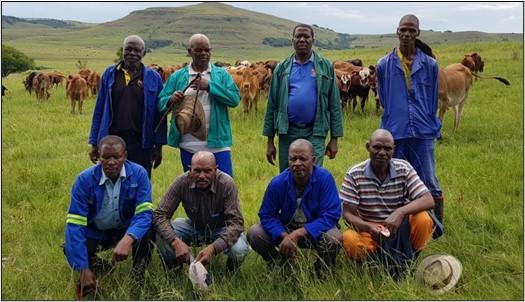Cooperative Development Program

Cooperative Development Organisation
Implementing Partners and Organisations
Peru: National Agriculture Convention, Ministry of Agriculture, Department for Livestock Development, Village of El Porvenir.
Period of Implementation
Geographic scope
Americas: Peru
Africa: South Africa
Cities:
Peru: Pasco, Junin, Cusco Provinces
South Africa: Provinces of Mpumalanga, Kwa Zulu Natal, Eastern Cape, Free State, Limpopo
Budget
Donor(s)
Bilateral Aid: USAID
Sector(s)
Type of Activity
Summary
GENEX's strategic approach to the Cooperative Development Program is simple: in meeting their common needs, farmers can accomplish more together than they can alone. However, in many instances, farmer organizations lack the capacity to effectively apply the cooperative business model to meet their members’ needs or mitigate their risks. The solution: livestock producers and their cooperatives can improve their profitability, productivity, resilience, and hence, their compet-itiveness and sustainability in the marketplace if given access to expertise, mentoring and advice — and they use it. Based on its on-the-ground observations, quantified, evidence-based outcomes, and the significant, unmet need and calls for sup¬port from government stakeholders, industry partners, and local cooperatives for assistance. GENEX's local, hands-on experience, the potential for growth among smallholder farmers and nascent cooperatives exists. Cooperatives have the aspirations, attributes, common vision and committed member¬ship that are critical and foundational for success, but they will not succeed without a helping hand. GENEX's strategy is a holistic, common sense, business-driven approach to helping farmers operate strong commercial-scale businesses. Only when cooperatives and their members fully take advantage of their strengths, understand and address their weaknesses, and can depend on themselves will they be able to achieve the financial rewards that come from operating stable businesses where they are consistently able to meet the demand for volume, consistency, quality and product diversity. The programs overall goals are to: 1) Strengthen and expand the number and value of multiyear commercial transactions—sales, contracts, product lines, capital, joint ventures—where there had been none or few before, and 2) Develop market linkages with business, industry, government, firms and associations. Cooperatives that are open to learning, willing to adapt and which are ready to operationalize the Strengthening Farmer Cooperative Competitiveness strategies find that they dramatically improve their capacity to enter, stay and expand in the local and regional marketplace with a sound, competitive, sustainable footing that can have significant economic impact.
Project Objectives
In meeting their common needs, farms can accomplish more together than they can alone. In many instances, farmer organizations lack the capacity to effectively apply the cooperative business model to meet their members’ needs or mitigate their risks. Livestock producers and their cooperatives can improve their profitability, productivity, resilience, and hence their competitiveness and sustainability in the marketplace if given access to expertise, mentoring and advice.
Impact on SDGs
Main Indicators
Members and Cooperatives Are Accessing Affordable Financing: With business plans, technical guidance and networking, cooperatives will find avenues to financing and credit that were previously outside their capacity to access.
Sound Co-op Governance Is Practiced: Stronger cooperative structure and governance, more robust leadership, sound board structure codified and practiced, co-ops are legally compliant, transparent and accurate financial, farming and cooperative data is collected.
Farm Productivity and Profits Have Risen - Farmers Are Market/ Cooperative-Ready: Through agricultural training and mentorship, cooperative members will have improved their production capacity to produce to meet quality standards in the volume required to supply market demands, increased cooperative know-how in animal husbandry and value-added production.
Women and Youth Fully Participate in their Cooperatives: Leadership diversity and the number of young farmers expand.
Impact Measurement
Members and Co-ops are Accessing Affordable Credit/ Financing
Farm Productivity and Profits Have Risen, Farmers are Market and Cooperative Ready
Sound Co-op Governance & Board Structure Is Codified and Practiced and legally compliant
Number of Youth & Women Fully Participate in their Cooperative Rises
Direct beneficiaries
Organisations: 34
Individuals: 3885
Local stakeholders
Birha Beef (Peddie N2 Primary Agricultural Cooperative),
Sisonke Balimi Development Cooperative, Bemifa